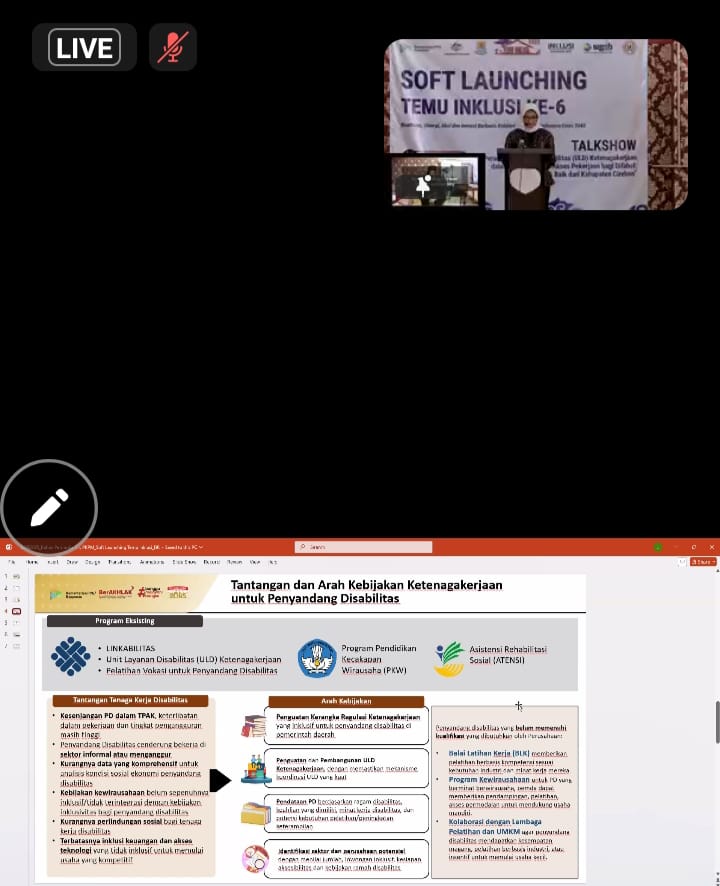Cirebon District Administrator Imron Rosyadi opens an Inclusion Meeting 6 “Commitment, Synergy, Action, and Unity-Based Innovation for Golden Indonesia 2045” on Thursday, 8th May 2025.
The Inclusion Meeting 6 proceeds in Durajaya Village, Greged Subdistrict, Cirebon District. Imron says that the national event is an affirmation that inclusion is not a goal, but an ongoing process. “It calls for the involvement of all community members, by using Unity as a base,” he says. He also affirms that the District Government in Cirebon supports fully the Inclusion Meeting 6 and appreciate Sigab Indonesia for organising the meeting. He confirms that his government is ready to push for multi-sector synergy to translate its commitment into actual innovative actions.
Sigab Director, M. Joni Yulianto says in his opening speech that Sigab Indonsia has worked with Cirebon Disability Communication Forum (Forum Komunikasi Difabel Cirebon or FKDC) and Cirebon District Government since 2024. FKDC supports the establishment of six inclusive villages – 3 village sin Greged Subdistrict and 3 villages in Lemah Abang Subdistrict – through Strengthening Inclusion for Diffability equity and Rights (SOLIDER) Program.“We also strengthen the Employment Disability Service Unit (Unit Layanan Disabilitas or ULD), which is detrimental in helping 600 people find employment. BAPPELITBANGDA (Development Planning, Research, and District Upgrade) starts the thematic Development Planning Deliberation (Musrembang) – a testimony of Cirebon District push towards disability inclusion,” says Joni.
Talkshow Session – Fulfilling the Rights to Employment
Sunarman Sukamto is in charge of the talk-show which features Apipudin – an employee at PT. Dahju Foam Product, or shoe-sole factory. Apipudin has worked for three months and signed a contract. He earns a minimum wage. He receives information from FKDC and through ULD, and he recounts his feeling of inferiority at the beginning before he got to know other (non-disability) employees. After a while, he notices that all employees have equal treatment.
FKDC’s role in disability accompaniment, towards fulfiling their employment rights, is guided by the principle and at the same time a challenge – to develop common perspective first, to do things together at ULD including providing data to ULD, to encourage other people with disability who have information about employment, to be involved in capacity development activities, and to have database on service providers in order for capacity development. It is truly a challenge to convince the employer, other people with disability, and family members. (Ast)












